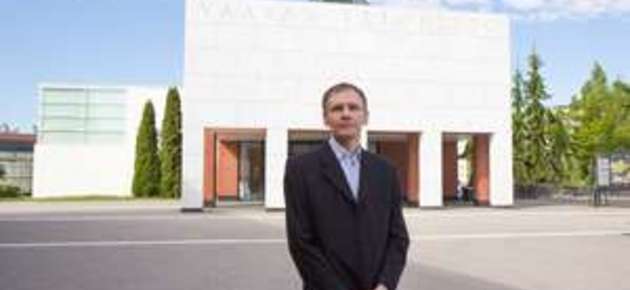Dissertation: Innovative networking of product development activities requires rational ...


In his dissertation on management studies, Dr. Tech. Iivari Kunttu has studied decision making in networked research and development (R&D) collaboration between Finnish high technology companies. In his earlier career, Dr. Kunttu acted in various R&D management tasks in Nokia Corporation and was then involved with R&D partnerships. At this time, he became interested in how industrial R&D organizations could best benefit from external partnerships in their innovation activities.
“Innovative R&D collaboration is not traditional subcontracting, in which the customer company simply purchases some task or service from its partner. Instead, it is close, long-term collaborative relationship in which the partner firms develop new technologies together. To enable efficient and innovative collaboration, this relationship should be based on rational, fact-based decision making”, Kunttu explains.
R&D Outsourcing decisions should be made based on facts, not personal opinions
A central research question in the dissertation was to understand the mechanisms of R&D insourcing and outsourcing decisions in technology organizations. The results showed that these decisions are being made surprisingly often without fact-based rational reasoning.
“Research revealed that organizational traditions and the managers’ personal views and opinions guide these decisions significantly. This means that the rational reasoning related to e.g. governance cost estimations, resource optimization or the dependence considerations are not necessarily in the forefront of the managerial decision making.”
Dissertation presents insights and methods that may facilitate rational decision making concerning R&D outsourcing. The rationales suggested to be used include efficiency of the relationship, competences and skills available, external dependences introduced by the relationship and organizational identity.
Innovative R&D collaboration relies on joint learning
The study analyzed also the factors and mechanisms that may facilitate the continuation and deepening of the collaborative relationship towards innovative partnership between technology firms. Two central factors were arisen. The first one was related to close personal relations between customer and supplier organizations on various organizational levels. The personal-level collaboration facilitates the development of mutual trust and respect between partners, and also increases the efficiency of the relationship. The second factor involved with relational joint learning. It includes open knowledge sharing and transfer within the collaborative relationship, as well as creation and utilization of new knowledge.
“The experimental knowledge created in the relationship ties the partners closer together. Since the jointly created knowledge is relationship-specific and tacit in nature, it is difficult to transfer or utilize outside the relationship. For this reason, the learning relationships are not only innovative but also long-term structures in R&D networks”, says Kunttu.
Public defense
The public examination of M.Sc. Iivari Kunttu’s doctoral dissertation “Boundary considerations and joint learning in knowledge-intensive R&D collaboration” will be held on Friday 30 June at 12 o´clock in auditorium Nissi (K218, Tritonia). The field of dissertation is management.
Dean Antti Lönnqvist (University of Tampere, Faculty of Management) and Dean Pauli Kuosmanen (Tampere University of Technology) will act as opponents and Professor Marko Kohtamäki as custos.
Further information
Iivari Kunttu, tel +358 44 7123127 E-mail: iivari.kunttu(at)uwasa.fi
Kunttu, Iivari (2017) Boundary considerations and joint learning in knowledge-intensive R&D collaboration. Acta Wasaensia 378.